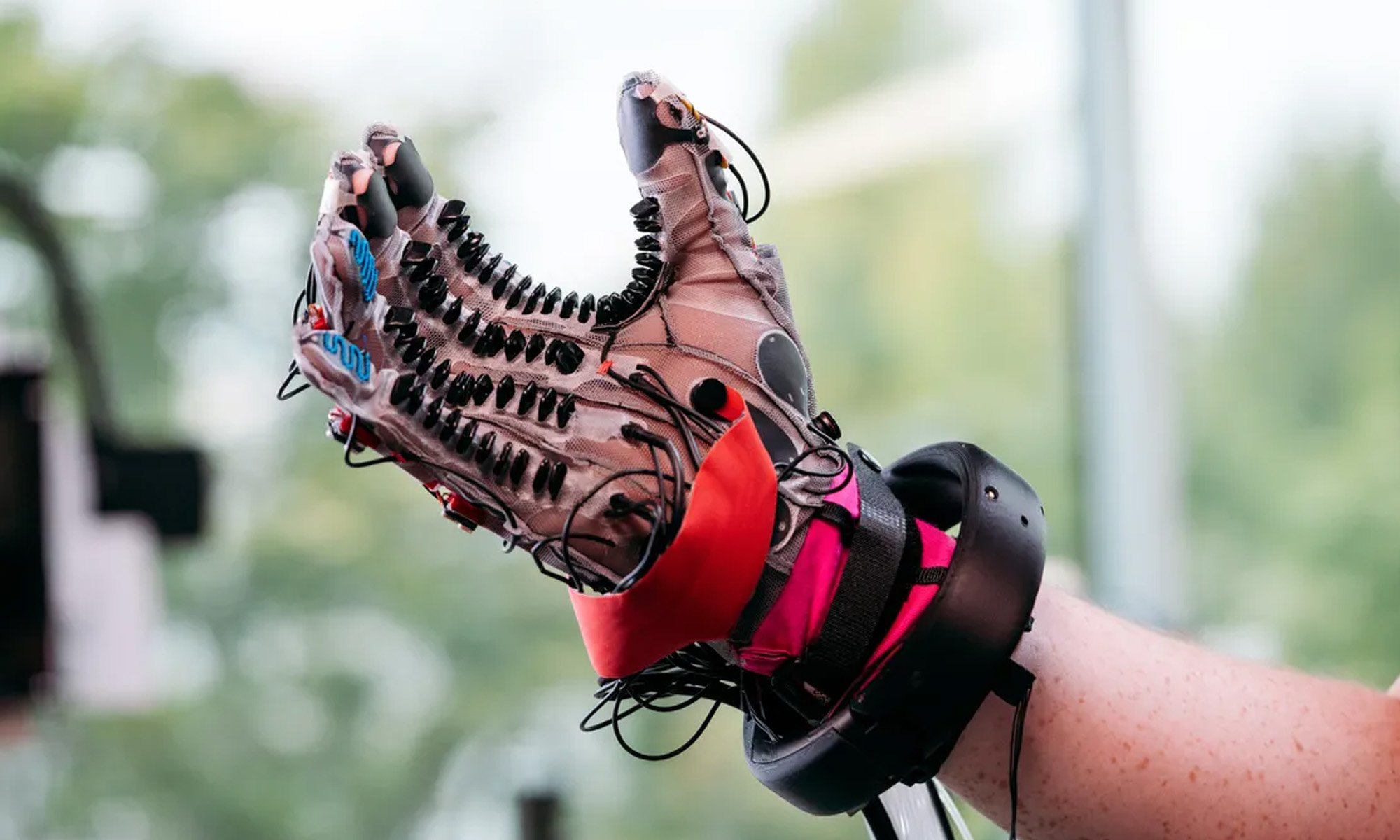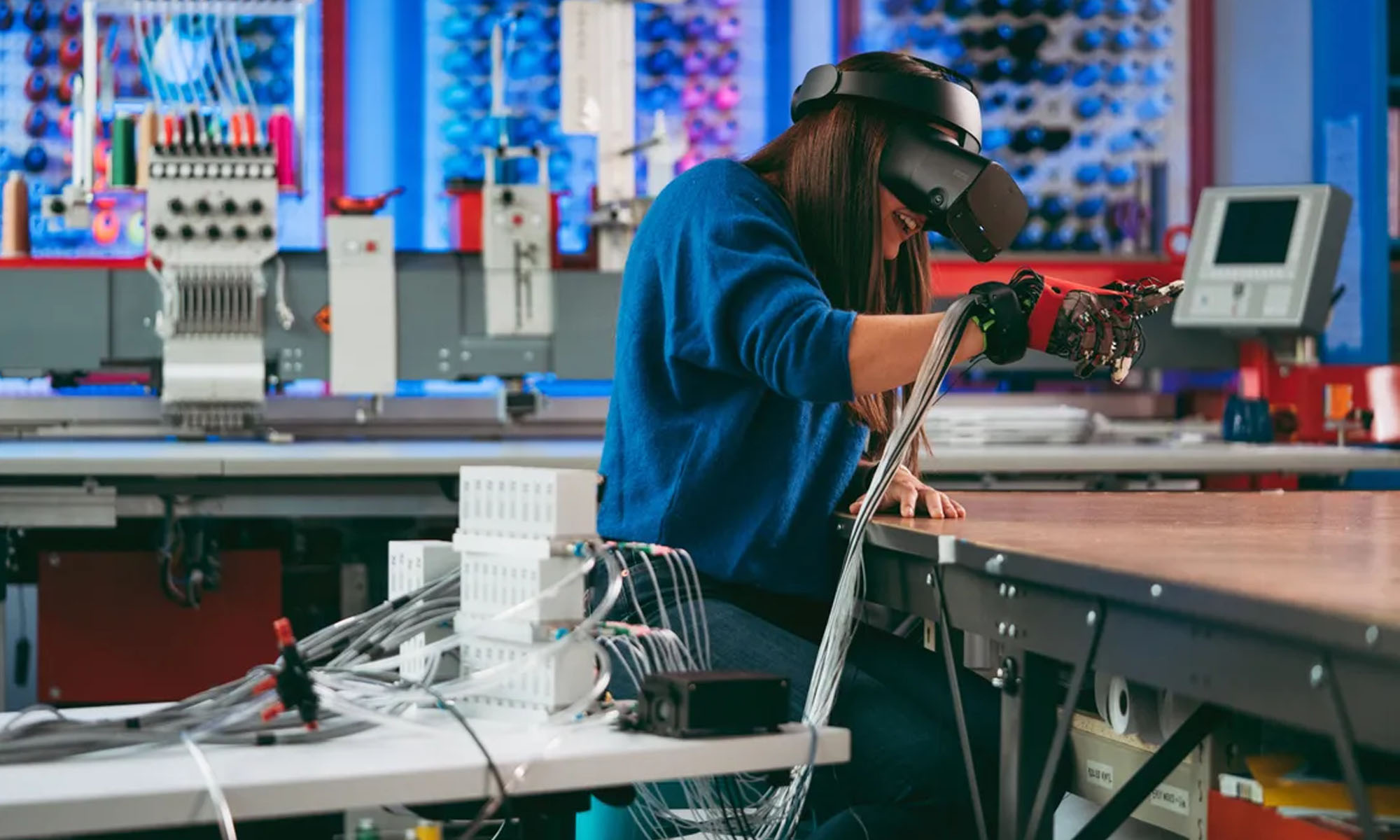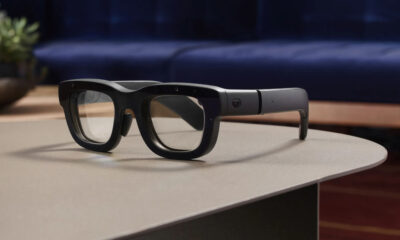News
Meta Unveils Its Prototype Haptic Gloves For Virtual Reality
The gloves are capable of simulating complex sensations to provide their wearer with natural feedback when interacting with virtual objects.

Meta — formerly Facebook — is trying to create what it describes as an embodied version of the internet, and it’s working hard on many individual pieces that are supposed to enable users to interact with it. Recently, a team at Reality Labs (RL) Research has unveiled a prototype of virtual reality haptic gloves capable of simulating complex sensations to provide their wearer with natural feedback when interacting with virtual objects.
The gloves use arrays of microfluidic actuators driven by the world’s first high-speed microfluidic processor to achieve millisecond response times while keeping power consumption minimal — something that’s extremely important for any wearable hardware device.

Once ready for release, the gloves could be used to support many virtual reality use cases. “The value of hands to solving the interaction problem in AR and VR is immense” explained RL Research Director Sean Keller. “We use our hands to communicate with others, to learn about the world, and to take action within it. We can take advantage of a lifetime of motor learning if we can bring full hand presence into AR and VR”.
Unfortunately, a lot of work still needs to be done for the technology to leave the research lab where it’s being developed. According to Keller, the team has made groundbreaking progress across multiple scientific and engineering disciplines, but the light at the end of the tunnel is only starting to become visible.
Also Read: A Beginner’s Guide To Getting Started With NFTs
Meta isn’t the only company working on haptic gloves for virtual reality. There’s also HaptX, whose founder and CEO Jake Rubin has accused Meta of copying its patented designs. In an official statement, the company claims that Meta’s gloves appear to be substantially identical to HaptX’s patented technology.
“We welcome interest and competition in the field of microfluidic haptics; however, competition must be fair for the industry to thrive” said Rubin. Meta has yet to respond to the accusation, so stay tuned for updates.
News
Samsung Smart Glasses Teased For January, Software Reveal Imminent
According to Korean sources, the new wearable will launch alongside the Galaxy S25, with the accompanying software platform unveiled this December.

Samsung appears poised to introduce its highly anticipated smart glasses in January 2025, alongside the launch of the Galaxy S25. According to sources in Korea, the company will first reveal the accompanying software platform later this month.
As per a report from Yonhap News, Samsung’s unveiling strategy for the smart glasses echoes its approach with the Galaxy Ring earlier this year. The January showcase won’t constitute a full product launch but will likely feature teaser visuals at the Galaxy S25 event. A more detailed rollout could follow in subsequent months.
Just in: Samsung is set to unveil a prototype of its augmented reality (AR) glasses, currently in development, during the Galaxy S25 Unpacked event early next year, likely in the form of videos or images.
Additionally, prior to revealing the prototype, Samsung plans to introduce…
— Jukanlosreve (@Jukanlosreve) December 3, 2024
The Galaxy Ring, for example, debuted in January via a short presentation during Samsung’s Unpacked event. The full product unveiling came later at MWC in February, and the final release followed in July. Samsung seems to be adopting a similar phased approach with its smart glasses, which are expected to hit the market in the third quarter of 2025.
A Collaborative Software Effort
Samsung’s partnership with Google has played a key role in developing the smart glasses’ software. This collaboration was first announced in February 2023, with the device set to run on an Android-based platform. In July, the companies reiterated their plans to deliver an extended reality (XR) platform by the end of the year. The software specifics for the XR device are expected to be unveiled before the end of December.
Reports suggest that the smart glasses will resemble Ray-Ban Meta smart glasses in functionality. They won’t include a display but will weigh approximately 50 grams, emphasizing a lightweight, user-friendly design.
Feature Set And Compatibility
The glasses are rumored to integrate Google’s Gemini technology, alongside features like gesture recognition and potential payment capabilities. Samsung aims to create a seamless user experience by integrating the glasses with its broader Galaxy ecosystem, starting with the Galaxy S25, slated for release on January 22.


























